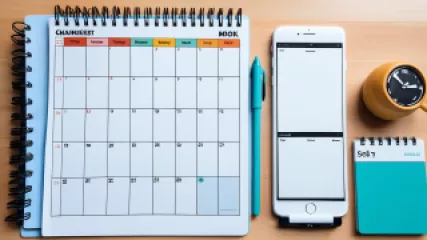Top 10 Time Management Tips for Reducing Anxiety
Top 10 Time Management Tips for Reducing Anxiety
Balancing the demands of work, school, and personal life can be a constant challenge, often leading to feelings of stress and anxiety. However, with the right time management strategies, you can take control of your schedule and reduce the burden of anxiety. In this comprehensive guide, we'll explore 10 powerful time management tips that can help you streamline your daily routine, boost your productivity, and find more peace of mind.
1. Prioritize Your Tasks
One of the key aspects of effective time management is prioritizing your tasks. Start by making a list of all the items on your to-do list, and then assign each task a level of importance. High-priority tasks should be completed first, while lower-priority tasks can be scheduled for later or delegated to others. This simple step can help you focus your energy on the most critical responsibilities, reducing the overwhelming feeling of having too much to do.
2. Utilize the Pomodoro Technique
The Pomodoro Technique is a time management method that involves working in focused 25-minute intervals, followed by short breaks. This approach can help you maintain your concentration, avoid burnout, and break down larger tasks into more manageable chunks. Set a timer for 25 minutes, work intensely on a single task, and then take a 5-minute break. Repeat this cycle several times, and you'll be surprised by how much you can accomplish.
3. Eliminate Distractions
In our digital age, it's all too easy to get sidetracked by notifications, social media, and other online temptations. To combat this, identify the biggest sources of distraction in your life and take steps to minimize them. Turn off notifications on your devices, close unnecessary browser tabs and apps, and create a dedicated workspace free from clutter and distractions. This will help you stay focused and on-task, reducing the anxiety that can come from constantly being pulled in different directions.
4. Batch Similar Tasks Together
Instead of tackling tasks one by one, try batching similar activities together. For example, group all your email responses, phone calls, or social media posts and address them in dedicated blocks of time. This can help you work more efficiently, as your brain doesn't have to constantly switch between different types of tasks. By batching similar tasks, you can reduce the cognitive load and mental fatigue that can contribute to anxiety.
5. Learn to Say No
As much as we want to help others and take on new responsibilities, it's important to recognize our own limitations. Learn to say no politely but firmly to requests that don't align with your priorities or that would overload your schedule. Saying no can be difficult, but it's a crucial skill for managing your time and reducing anxiety. Remember, you can't pour from an empty cup, so protecting your time and energy is essential for your overall well-being.
6. Delegate and Outsource
If you find yourself constantly overwhelmed by your workload, consider delegating tasks to others or outsourcing certain responsibilities. This could involve asking a colleague or family member to take on a specific task, or hiring a virtual assistant to handle administrative duties. By sharing the load, you can free up your time and mental space to focus on the most important aspects of your life, reducing the anxiety that can come from feeling overburdened.
7. Create a Distraction-Free Environment
In addition to eliminating digital distractions, it's important to create a physical environment that supports your productivity and well-being. Declutter your workspace, minimize visual clutter, and ensure that your surroundings are comfortable and conducive to focused work. This can help you feel more in control of your environment, which can in turn reduce feelings of anxiety and stress.
8. Practice Timeboxing
Timeboxing is a time management technique that involves allocating a specific amount of time to a task or project. Set a timer for a predetermined period, and work on the task exclusively until the time is up. This can help you stay on track, avoid procrastination, and ensure that you're making steady progress on your goals. By breaking down your work into manageable timeboxes, you can reduce the overwhelming feeling of having too much to do and maintain a sense of control over your schedule.
9. Schedule Regular Breaks
It's important to remember that even the most productive people need to take breaks. Incorporate regular breaks into your daily routine, whether it's a short walk, a few minutes of stretching, or a quick meditation session. These breaks can help you recharge, refocus, and reduce the symptoms of anxiety, such as tension, headaches, and fatigue.
10. Review and Adjust Your Approach
Time management is an ongoing process, and what works for one person may not work for another. Regularly review your time management strategies and make adjustments as needed. Pay attention to what's working well and what's causing you more stress, and be willing to experiment with new techniques until you find the right balance for your unique needs and lifestyle.
By incorporating these 10 time management tips into your daily routine, you can take control of your schedule, reduce feelings of anxiety, and improve your overall well-being. Remember, effective time management is not about doing more, but about doing the right things at the right time. With a little practice and a willingness to experiment, you can create a more focused, balanced, and stress-free life.
About the Author
Jeremiah Hill is a time management expert and certified life coach who has helped countless individuals and organizations achieve their goals while reducing anxiety and stress. With over a decade of experience in the field, Jeremiah is passionate about empowering others to take control of their time and find a healthier work-life balance.






